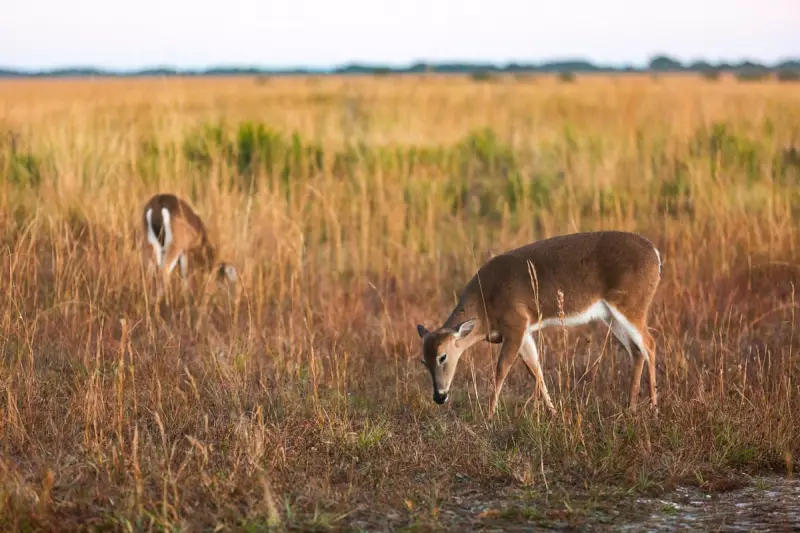
Florida wildlife officials have confirmed the state's first-ever case of Chronic Wasting Disease (CWD), a devastating neurological condition often dubbed 'zombie deer disease', sending shockwaves through conservation and hunting communities.
What is Chronic Wasting Disease?
Chronic Wasting Disease is a fatal neurological disorder affecting deer species, causing severe weight loss, stumbling, lethargy, and other neurological symptoms. Classified as a transmissible spongiform encephalopathy, it belongs to the same family as mad cow disease and has no known cure or vaccine.
Ground Zero: Holmes County Outbreak
The confirmed case emerged in Holmes County, northwest Florida, where a white-tailed deer tested positive after being harvested by a hunter. The Florida Fish and Wildlife Conservation Commission (FWC) has immediately implemented emergency measures to contain the outbreak.
Urgent Containment Measures Deployed
Wildlife authorities have established a CWD Management Zone encompassing portions of Holmes, Jackson, and Washington counties. Within this zone, officials are:
- Prohibiting the movement of deer carcasses outside the designated area
- Establishing mandatory deer check stations for testing
- Banning recreational feeding of deer to prevent congregation
- Launching enhanced surveillance and monitoring programs
Why This Matters for Florida's Ecosystem
Florida joins 32 other states grappling with CWD, but this detection marks a significant milestone for the Sunshine State's prized white-tailed deer population. With nearly 700,000 hunters contributing approximately $1.3 billion annually to Florida's economy, the implications extend beyond wildlife conservation to economic impact.
Human Health Concerns and Precautions
While no human cases have been documented, the Centers for Disease Control and Prevention strongly recommends testing harvested deer and avoiding consumption of CWD-positive animals. The FWC advises hunters to wear gloves when field-dressing deer and minimize contact with brain and spinal tissues.
As Florida confronts this wildlife health emergency, officials emphasise that early detection provides the best opportunity to limit the disease's spread and protect the state's cherished deer population for future generations.





